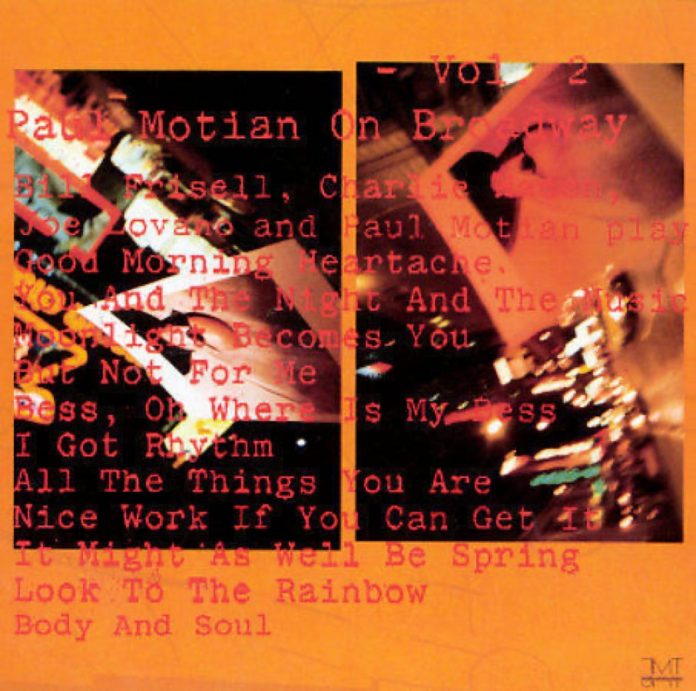There are implications here which I cannot fully grasp. What is the significance of Charlie Haden, 30 years after supporting Ornette’s revolution, turning up on an album of venerable standards treated in a thoroughly respectful way? Did the musicians want to play this music or is this their only passport into a studio these days?
Certainly there is no cynicism here. Motian and Haden play mainly background roles on the first five tracks as Frisell’s shimmering guitar and Lovano’s tenor, with a tone midway between Getz and Coltrane, produce a range of attractive textures.
Lovano seems to be a kind of revivalist. On a slow track such as Moonlight it’s hard not to believe he has listened carefully to Coltrane’s album of ballads, and on But Not For Me he harks even further back to Rollins’ 1954 version (with Miles). Tracks six, seven and eight bring Motian more into the spotlight with some interesting solos at medium and up tempos, but the last three are slow and gentle with Lovano and Frisell again in impressionistic mood.
This is an album of considerable charm and undeniable craftsmanship, but it lacks the depth and individuality brought to these songs by such interpreters as Davis, Parker, Hawkins and Billie Holiday.
Discography
Good Morning Heartache; You And The Night And The Music; Moonlight Becomes You; But Not For Me; Where Is My Bess; I Got Rhythm; All The Things You Are; Nice Work if You Can Get it; It Might As Well Be Spring; Look To The Rainbow; Body And Soul (58.49)
Joe Lovano (ts); Bill Frisell (el-g); Charlie Haden (b); Paul Motian (b). NYC, September 1989.
(JMT CD 834 440-2)
















